What is the Judicial Observation Programme?
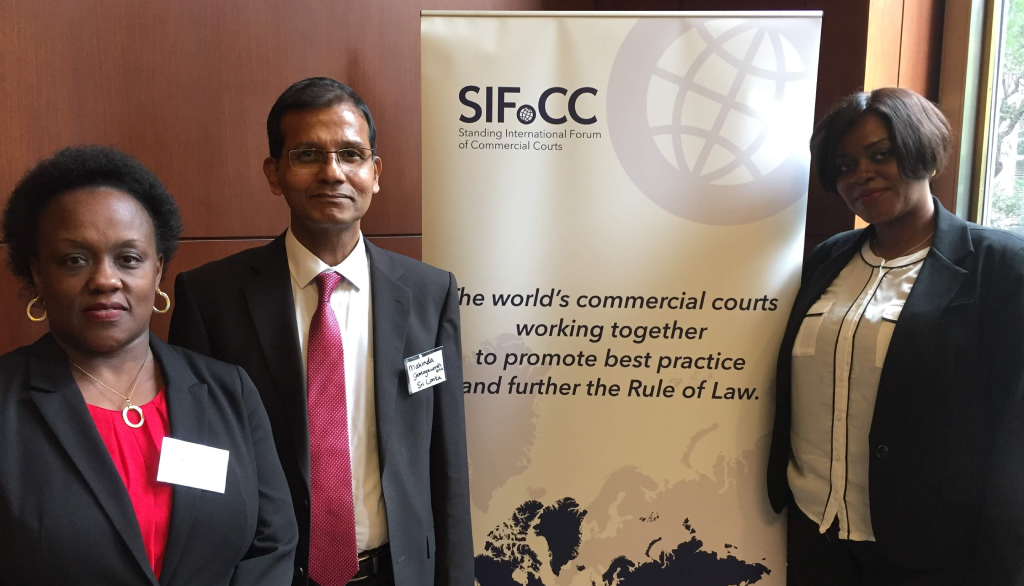
The judicial observation programme is the first of its kind. It is an intensive one-week observation and mentorship programme in the commercial courts of another SIFoCC host jurisdiction. There are usually 5 or 6 participants who are nominated by their Chief Justice, and it is a form of peer-to peer judicial engagement.
This serves two of SIFoCC’s objectives; sharing best practice and supporting developing countries to offer effective means for resolving commercial disputes. Furthermore, nominees develop judicial relationships with other jurisdictions on the programme, as well as with the host jurisdiction. We have a growing alumni of past participants who are in regular contact with each other. This enables the sharing of best practice and its wider application.
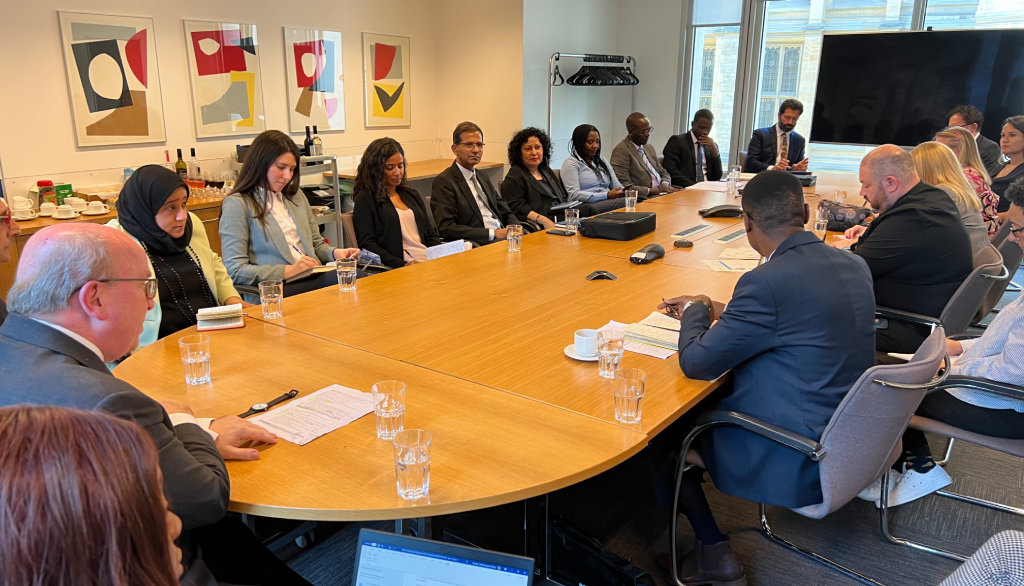
There have been five iterations of the Programme to date:
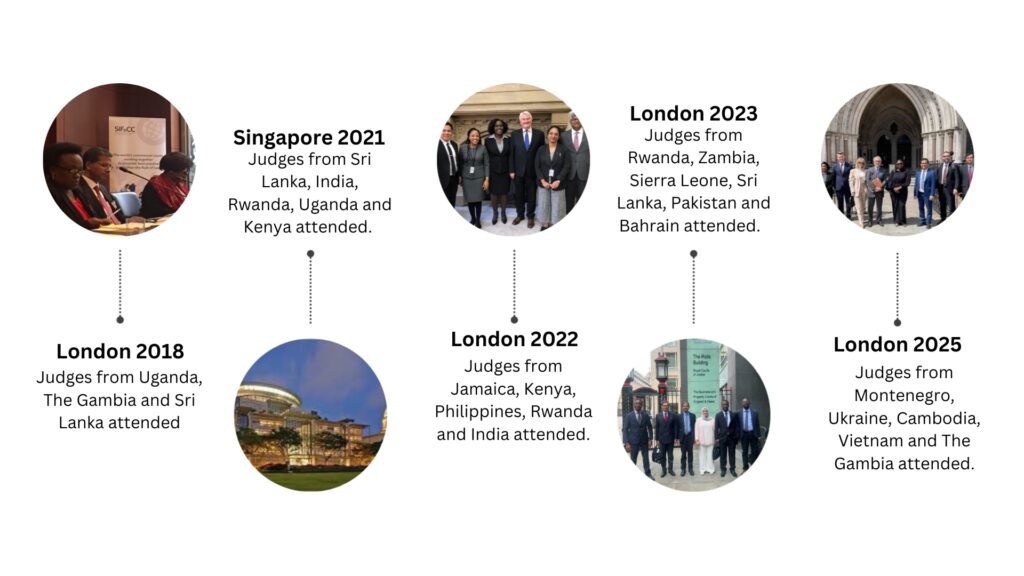
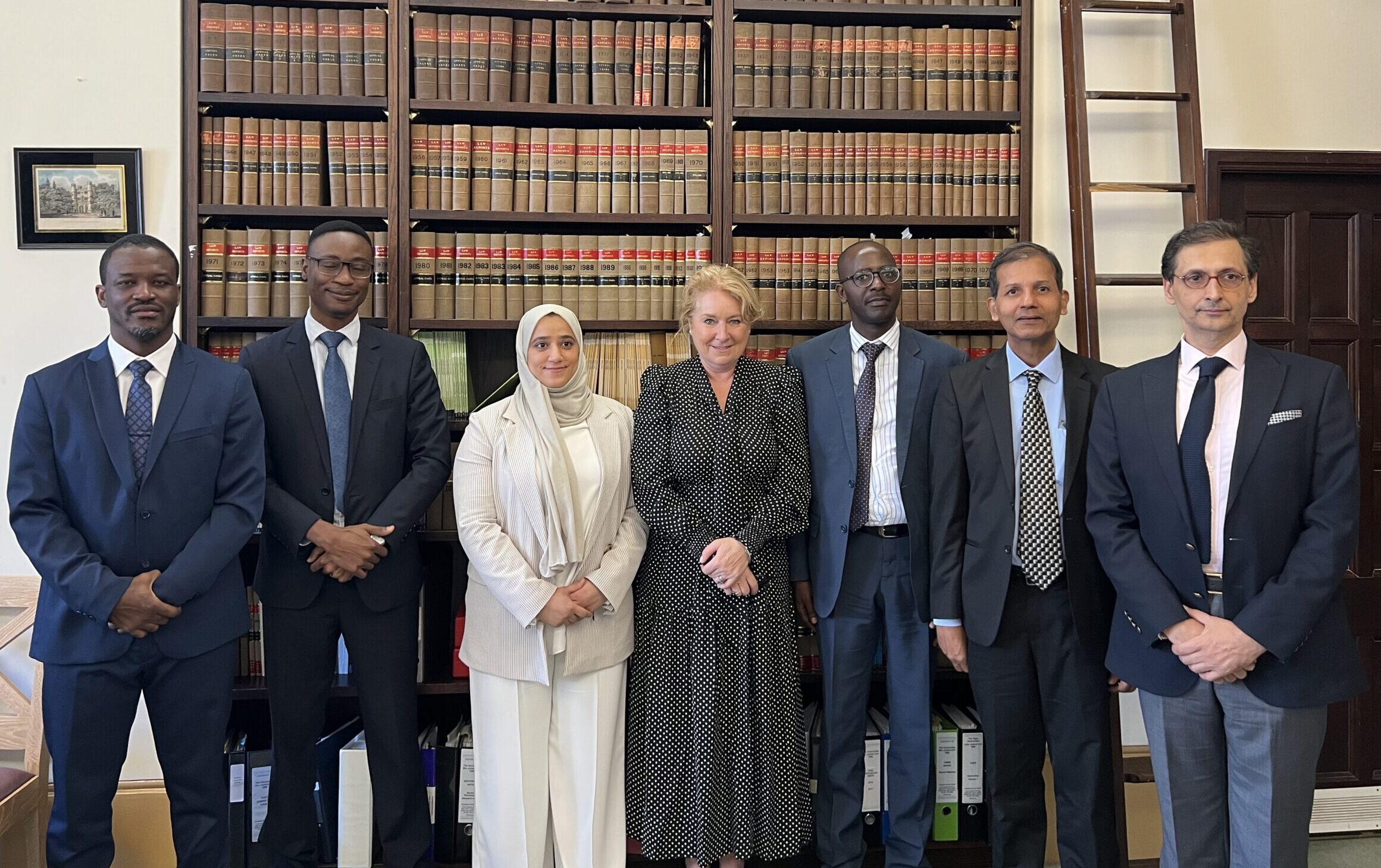
The most recent observation programme was hosted by England & Wales, kindly supported by ROLE UK. The judges nominated were from:
- Bahrain (its first female commercial judge)
- Pakistan (which is actively developing its regional commercial courts and their expertise to support arbitration)
- Rwanda (the VP of the Commercial High Court was nominated)
- Sierra Leone (with its Fast Track commercial courts established since Ebola)
- Sri Lanka (which is developing Port City)
- Zambia (whose appellate judges played a significant part at SIFoCC’s most recent full meeting in Sydney).
A typical week on the observation programme:
- Download the 2023 full programme and see what is involved in a week on the observation programme: SIFoCC Observation Programme 2023 Programme
Testimonials of Observation Programme
A report by ROLE UK (the UK development organisation supported by the Foreign Commonwealth and Development Office), Peer to Peer in Action: A Case Study of SIFoCC by ROLE UK, on the Programme concluded:
“With the buy-in from Chief Justices from each jurisdiction, the assignments have both improved the capacity of the individual justice who joined the observer programme and helped inform wider judicial reform priorities on their return, including case management, use of technology, and the building of long-term peer-to-peer relationships between the judiciaries involved.”
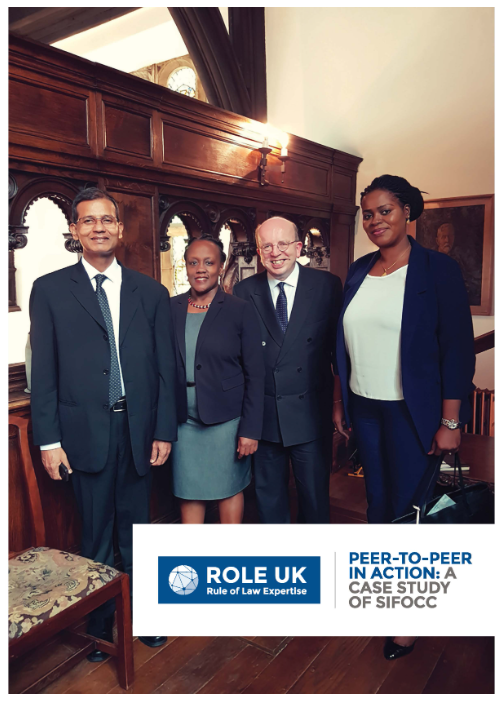
The report also observed:
“Because SIFoCC is a gathering of commercial court representatives on equal terms, technical assistance undertaken under SIFoCC’s name lends itself best to a peer-to-peer model, an approach which prioritises leadership from “external” peers rather than the supply driven model which has been heavily criticised as a development approach. SIFoCC’s conferences and the workstreams that are developed in between them, promote information sharing and collaboration between judges in all configurations: amongst developing courts, and established courts, and between the two.”
